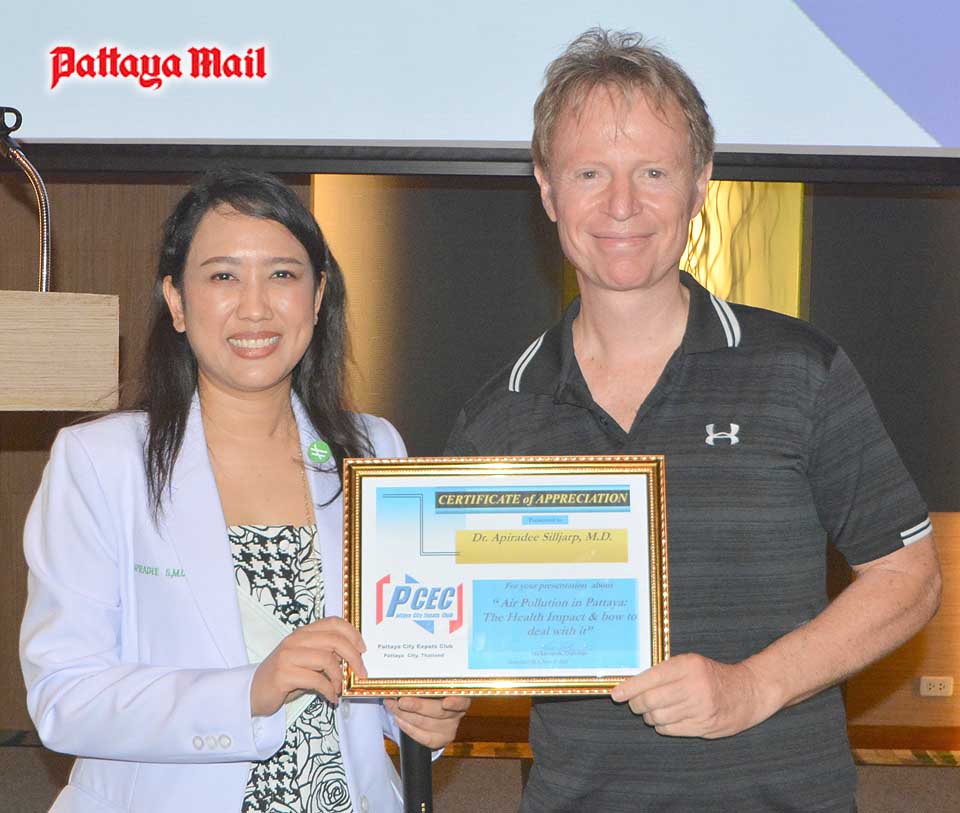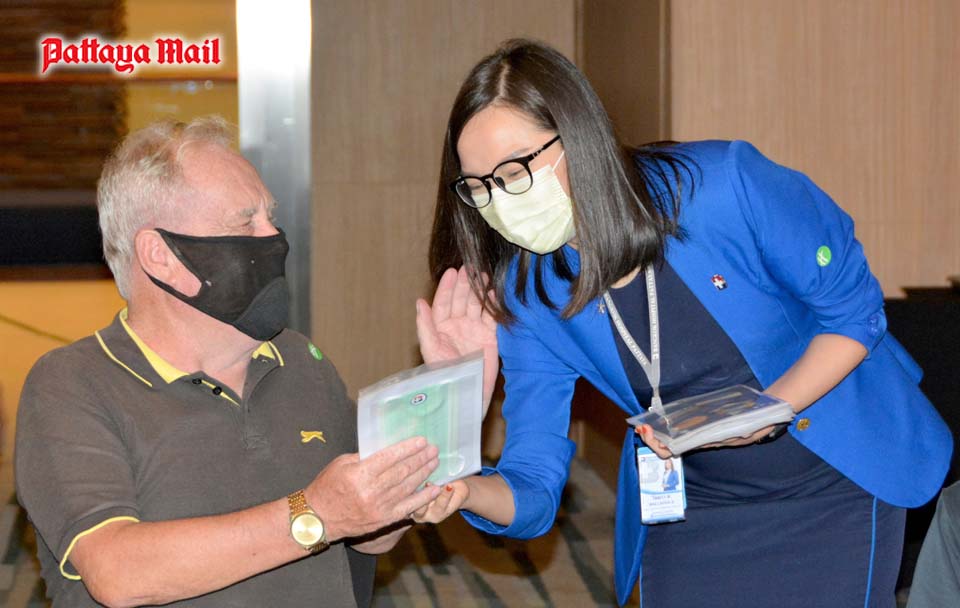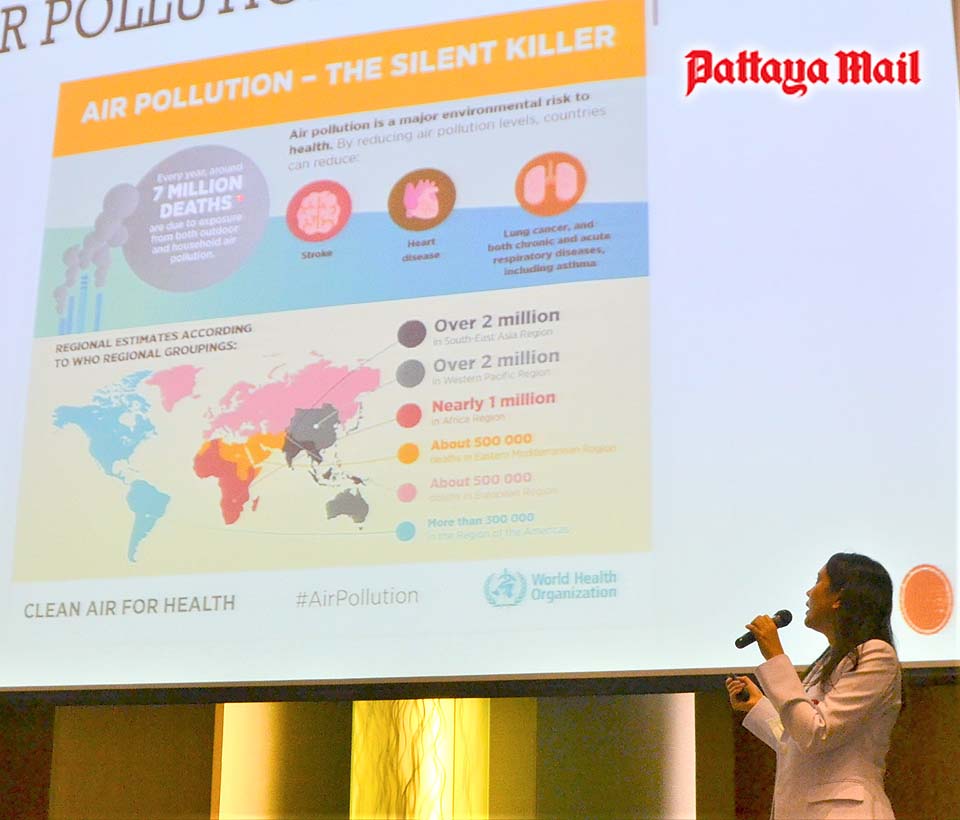
Dr. Apiradee Sukkharom, MD, an Otolaryngologist from the Ear, Nose, & Throat Center at Bangkok Hospital Pattaya (BHP), spoke on the topic, “The Health Effect of Air Pollution and How to Deal With It” at the Pattaya City Expat’s Club meeting (PCEC) on Wednesday, 10 March. It’s a topic of great interest to her PCEC audience as it related to the very air we breathe on a daily basis.
Dr. Apiradee began her presentation noting the seriousness of air pollution by presenting a slide showing that every year there are around seven million deaths due to exposure from both outdoor and household air pollution with two million of these occurring in Southeast Asia.
She followed this up by describing the major sources of air pollutants: (1) vehicular emissions in cities, (2) biomass burning, and (3) transboundary haze in rural and industrial discharges in industrialized zones. She then described that the air is made up of the following pollutants: NO2 (nitrogen dioxide), SO2 (sulfur dioxide), CO (carbon monoxide), CO2 (carbon dioxide), and PM (particulate matter). PM is measured by its sizes – PM10 can reach the lower respiratory tract, PM2.5 may penetrate the lungs, and PM of diameter <1.0 mm can penetrate further into the alveoli and thus reach the bloodstream.
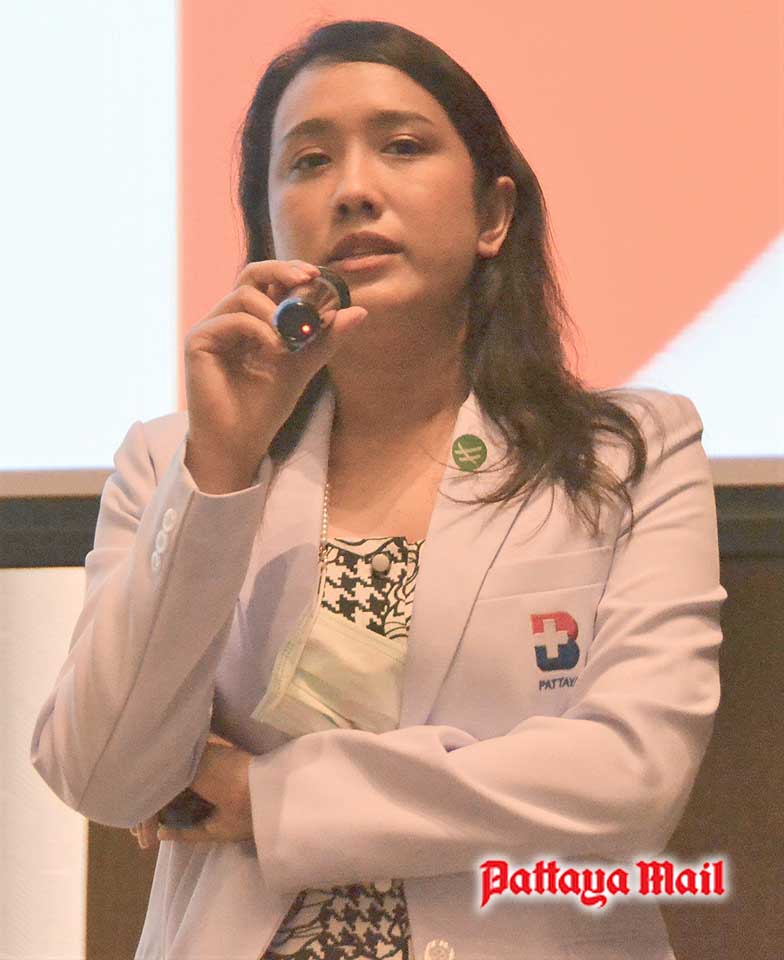
These pollutants enter the body through inhalation by the nose and mouth. The effects of inhaling particulate matter of 2.5 is nose, throat and lung irritation, chronic bronchitis, and lung cancer. Further, these particles can enter the blood stream causing an autonomic (nervous system) imbalance, arrhythmia (irregular heart beat), and heart disease.
Dr. Apiradee then mentioned the means of protecting oneself from these pollutants by wearing a facemask every time you go outdoors when the air quality is poor. She said you should use a high-quality face mask and noted that surgical masks can remove up to 60 percent of PM2.5 entering your body.
Further, she said you should have enough rest consisting of at least six to eight hours sleep per day, keep your body fit through exercise (avoiding outdoor activity when the air is unhealthy), diet (fruit and vegetable), drinking enough water, and taking vitamin C supplement. She then mentioned that high risk groups must be medically prepared; those with allergy should have available antihistamine and those with heart and lung problems should have bronchodilator available.
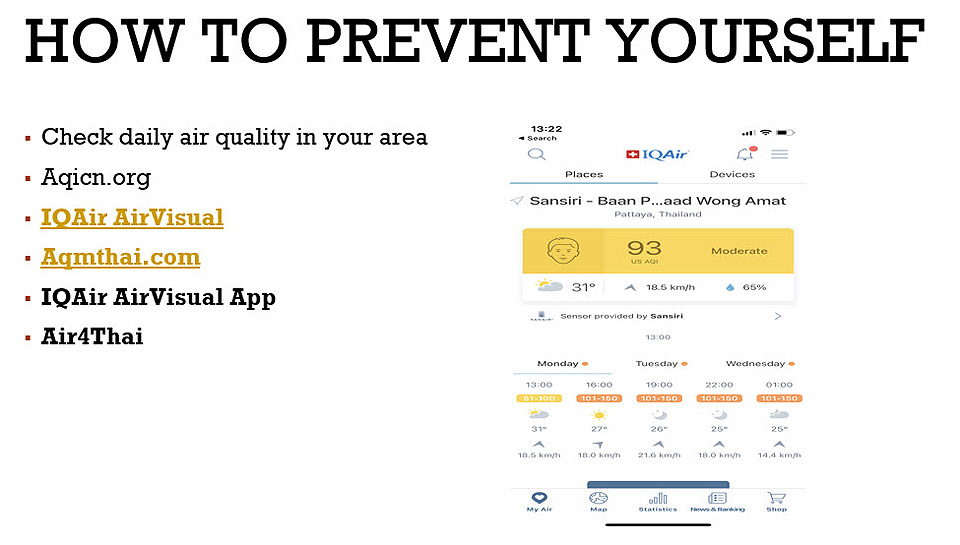
She then showed a slide with some “Apps” that you can use to find out what the air quality is in your area and specifically recommended IQAir AirVisual (iPhone App Store “AirVisual Air Quality Forecast” and android Google Play store “Air Quality | AirVisual”).
This slide was followed by another showing the meaning of the color codes depicted by the IOAir app. These 6 codes were: (1) blue is “good”, (2) green is “moderate”, (3) yellow is “unhealthy for sensitive groups”, (4) red is “unhealthy”, (5) purple is “very unhealthy”, and (6) black is “hazardous.” For each color, the slide showed the health effects and precautionary actions to take.
When the air is unhealthy, Dr. Apiradee said you should keep your doors and windows closed, avoid outdoor activity, and install an air purifier. Also, visit your doctor right away if you experience any trouble breathing.
After the presentations, MC Ren Lexander brought everyone up to date on the latest events. This was followed by the Open Forum conducted by Les Edmonds where attendees can make comments or ask questions about Expat living in Thailand, especially Pattaya. For more information visit the PCEC’s website at https://pcec.club/.
